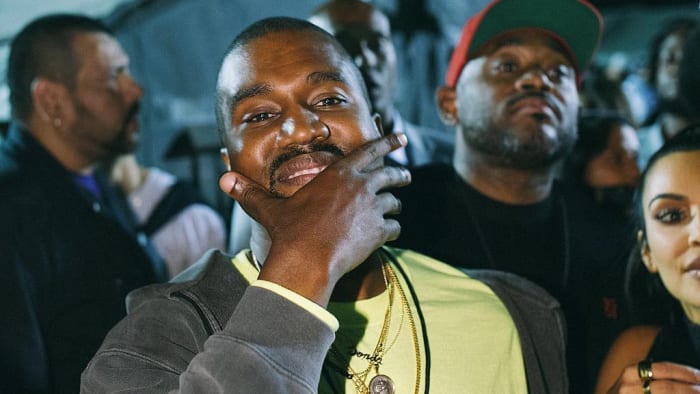Photo by: Joshua Sobel
Note: This piece was originally a guest editorial for DJBooth.
Kanye West can’t retire. His music publisher says so.
Buried in the language of an extension to his music publishing deal with EMI is this clause:
“At no time during the Term will you seek to retire as a songwriter, recording artist or producer or take any extended hiatus during which you are not actively pursuing Your musical career in the same basic manner as You have pursued such career to date.”
From the publisher’s perspective, the situation is simple: they don’t make money when West isn't working, so they had him sign a contract that says he can’t stop.
From any other perspective, this clause is outrageous, and West is using that language, together with a decades-old California law, in a pair of lawsuits that could completely change the music business.
In January, West filed suit against Roc-a-Fella Records (and affiliated labels and businesses owned by Universal Music Group), and music publisher EMI (owned by SONY/ATV Music Publishing). Both lawsuits were heavily redacted, making it difficult to understand them in detail, but it was clear there was a dispute over his rights.
We learned more about one this past Friday when text of the EMI lawsuit became public in an exhibit to a document filed with the court.
West’s lawsuit against EMI seeks to end enforcement of their rights, return copyright ownership to West, and compensate him retroactively for the money EMI earned as a result.
This is a huge case that could significantly alter how music publishers and record companies treat their songwriters and performing artists.
If there’s anything that strikes fear into the hearts of media company executives, it’s California Labor Code Section 2855. This provision limits personal services contracts under California law to seven years and is often used by actors and/or performing artists to get out of their contracts. The law is so potentially damaging that record companies and music publishers routinely include language that specifically states their agreements cannot be construed as personal services contracts under California law. Some go even further, demanding the songwriter or artist warrant and represent not only that they don’t live in California, but that they don’t intend to move there in the future.
The law results from a fight that Academy Award-winning actor Olivia de Havilland won against the Hollywood studio system that kept her under contract in the 1940s. At the time, movie studios did not hire actors on a picture-by-picture basis but signed them to long-term contracts. The studios then automatically extended the term of those contracts whenever the actor turned down a role, ensuring that they remained signed even when they weren’t working on a film. Most actors tacitly accepted the practice, but De Havilland—best known for her role as Melanie Hamilton in Gone with the Wind—fought against Warner Bros., and won, creating the “Seven Year Rule.”
That Seven Year Rule governs personal services, but not copyright ownership, and what is significant—and so potentially damaging about West’s lawsuit—is that he appears to be using the rule as a way to force the return of his copyrights.
Under Federal Law, the duration of copyright is either the life of the author plus 70 years or 95 years from publication. Under the terms of a songwriting deal, a music publisher acquires the rights to an author’s compositions (just as under a recording agreement, a record company acquires the rights to a performing artist’s master recordings). Ownership of those copyrights is vital to the publisher or label; they make their money by exploiting those rights, and their value is in part tied to the lengthy duration of copyright.
While disputes over personal services contracts can be ugly, the question of ownership rarely comes up. At issue is whether the contract remains in effect, not whether the company continues to own the artist’s creative product. The artist typically seeks only to get out of the deal, and while the company may be forced to release them, the company still keeps the copyrights.
West’s lawsuit is significant because he’s putting copyright ownership on the table. By doing so, he’s not just saying that California law means his contract ended after seven years (in 2010), but that EMI must also return his copyrights to him.
This is an existential threat to music publishers (and record companies). If Kanye (read: Kanye's legal team) can convince the court that his argument is valid, artists could be able to use the Seven Year Rule not just to end their contracts, but to reclaim their masters and publishing. This is only the beginning of the fight, as we still don’t know about the lawsuit against his label, or how any of this will play out, but a win would be an incredible victory for songwriters and performing artists, and catastrophic for music publishers and record companies.
Kanye West doesn't shy from controversy, and by suing his label and his publisher, he’s created another. West owes his impact to that audacity and is known as one of the most important artists and producers of his generation because of it. He does things nobody else will, and if he wins this case, he’ll be known not just for changing the music, but for changing the business as well.
For insider tips about the music business, subscribe to my newsletter and get a free ebook: Listen Up! A Simple Guide To Getting Heard On Spotify.



